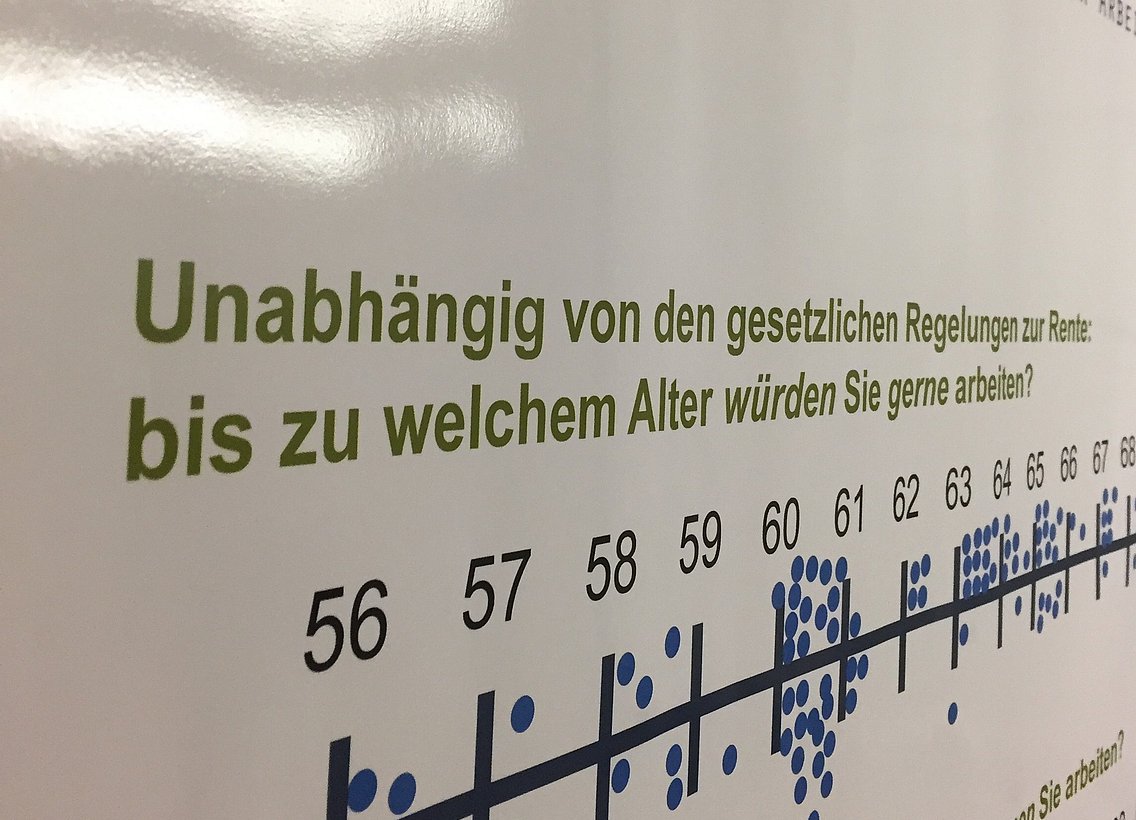The aim of this study is to investigate the long-term effects of work on health and employment in an ageing workforce, from an interdisciplinary point of view. The lidA study is the first representative cohort study in Germany, which examines relations between employment, age, health and work participation. It is also one of the most extensive long-term studies in the working environment field in Germany.
Previous large cohort studies in other countries found links between the nature of work (e.g. psychosocial aspects of the workload) and various health implications, such as cardiovascular diseases. However, as the the working life and the labour market are constantly and rapidly changing, it is necessary to follow these developments by means of large studies for current labour market requirements and to implement more recent scientific findings.

